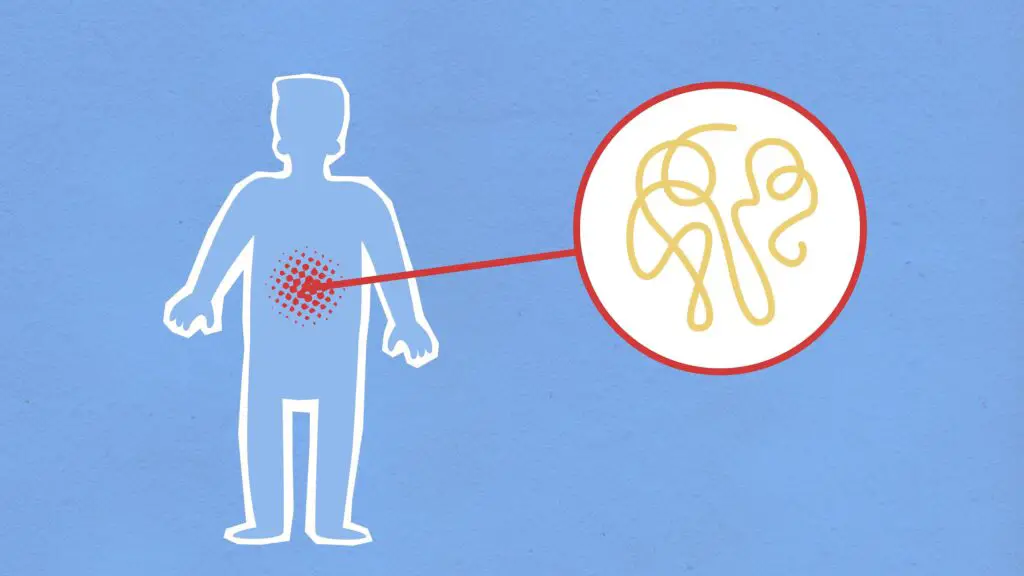Foods that cause inflammation are removed from the whole30 diet. This means that the latter is an anti-inflammatory diet that could be better if it’s more balanced and sustained.
Does the Whole30 Reduce Inflammation?
Yes.the whole30 diet is too similar to the standard anti-inflammatory diet recommended by doctors. Both diets have many similarities; they restrict the same foods that cause inflammation, like industrial sugar and processed foods, but there are also some differences.
What Makes the Whole30 Anti-Inflammatory?
The similarities between the anti-inflammatory diet and the whole30:
Eliminating Processed Foods
Some foods undergo transformation and modification in taste, texture and smell, to make the product more appealing to a wider audience as in the case of oils. And during this process, the industry will add to the food many ingredients that can cause inflammation. That’s why, in the anti-inflammatory diet, processed foods must be eliminated.
Gluten
Gluten is a natural vegetable protein that stimulates the secretion of “ interleukin” which are pro-inflammatory substance. When someone has inflammation or any inflammatory disease, we recommend limiting the consumption of foods that are rich in gluten to reduce the inflammation.The standard anti-inflammation diet and whole30 both diets don’t allow gluten.
Eliminate Industrial Sugar
Industrial sugar is one of the top foods that causes inflammation. During the manufacturing process of foods, they add a transformed sugar to the foods especially sweets, which makes any industrial foods containing sugar a top inflammatory food. Fortunately, the whole30 diet prohibits all industrial foods and recommends eating naturally.
Eliminate refined foods
Most refined foods are starchy, oils and candies. During the whole30 we focus only on whole foods, so we eliminate starchy foods like white bread, white pasta, refined grains like coffee, and refined legumes. Only wholemeal flour and gluten-free wholemeal pasta are recommended.
No empty calories
Foods that are called empty calories are foods that bring calories but have no health benefits. Like alcohol, ready meals, and junk foods. They are among the top inflammatory foods, that’s why they are eliminated by the whole30, the same as the standard anti-inflammatory diet recommended by your doctor.
Difference between the anti-Inflammatory diet and the Whole30 ?
As you can see, the standard anti-inflammatory diet is very similar to the whole30, they both have the same choice of foods to reduce inflammation, but this is not enough to judge whether the whole30 is the top anti-inflammatory diet. Still there are differences between the standard anti-inflammatory diet that a doctor will recommend to you and the whole30.
Duration
The duration of any diet is so important. The whole30 wasn’t created in the first place for inflammation, it was created to eliminate toxic substances from your body by eating only whole foods for 30 days only.
It kinda has the same aim as detox. but the whole30 wants to make people used to eat only whole foods and avoid empty calories foods. After 30 days, when the diet is over, you need to reintroduce the eliminated foods one by one and progressively.
In the standard anti-inflammatory diet, there is no duration to the diet until your results and blood tests are improved or in some cases, you‘re cured. But since the inflammation is generally chronic, the diet should last as long as possible according to the patient’s improvement.
Restrictions
The second difference between the standard anti-inflammatory diet and the whole30 is that we don’t eliminate as many foods as the whole30 do.
Dairy
Dairy is strictly eliminated by the whole30. But during the standard anti-inflammatory diet, they are only limited according to the disease or the patient’s case. Since they bring many benefits to our health, like minerals, calcium and iron, we can’t eliminate them totally. We just limit them cause of their fat intake, ( cause inflammation needs a low-fat diet).
Legumes
Legumes such as beans, lentils, and chickpeas, are forbidden from the whole30, but they shouldn’t be since they bring much fiber, vitamins, minerals, and iron to our body.
Nuts
Nuts are a great source of vitamin D and omega-3. In the anti-inflammatory diet, we need to limit them only but never eliminate them.
Eggs
Since eggs are fat-rich food, they need to be limited but not completely prohibited as in the whole30. Eggs can bring to our body a good amount of iron, vit D, and proteins. They just need to be limited to a maximum of 2 eggs per week.
What Inflammation Can the Whole30 Cure / Reduce?
Acne
Acne can be caused by several factors, most commonly hormonal or inflammation due to poor hygiene and diet. In this case, the Whole 30 diet can help reduce acne by reducing inflammation, provided you vary your diet and eat more plant-based foods.
Rheumatoid Arthritis.

RA ( rheumatoid arthritis) can be either an independent inflammation or a symptom of a disease. In both cases it remains an inflammation that can be reduced with the whole30.
Pcos
PCOS can be worse with a high-carb diet and processed foods. By following the whole30 diet which is based on natural low-carb foods, you may improve your PCOS and even get rid of it.
Obesity
Obesity is classified as an inflammatory disease. The whole30 is a restrictive diet that can help in losing weight quickly, but it’s not recommended.
Inflammatory Diseases that the Whole30 can’t Cure!
The whole30 is a great anti-inflammatory diet, but it lacks in many aspects and has many disadvantages as I explained before, so it can’t help with some diseases that need a long-lasting balanced eating, and some diseases are inflammatory but they can’t be cured with the whole30 because they are chronic and need medical treatment.
- Diabetes / Pre Diabetes
- Gastritis
- Hashimoto’s.
- Asthma.
- Inflammatory bowel disease.
Is the whole30 the best diet for Inflammatory Diseases?
No. The diet’s duration is too limited. 30 days of a strict diet won’t make a difference in your overall health, it may reduce some types of inflammation temporarily, but won’t keep you healthy for a long time. Also, the whole30 is too limited in food choices and so restrictive, we can’t understand how dairy is forbidden while they are rich in calcium and minerals.
What’s the Best Diet for Inflammation?
Inflammatory diseases need a long-lasting diet that should be more balanced and at the same time anti-inflammatory. It should focus on eliminating only foods that cause inflammation and try to limit some instead of eliminating them.

Also, inflammatory diseases need a protocol that focuses more in your lifestyle, cooking methods, and well-being for a long time instead of short-term, restricted diet. I recommend the Mediterranean diet, because it’s balanced, and focuses on food quality. For example, the diet doesn’t eliminate dairy, it just eliminates cow milk and dairy, but allows sheep’s milk and dairy because they are healthier than cow’s.
How To act in Case You Have an Inflammatory Disease?
The first step to do when you feel there’s something wrong with your health, like a pain in some part of your body, is to see a doctor to make sure what’s going on.
Inflammatory diseases should be first diagnosed by a specialist, and then medication if necessary because a diet should be associated with your medical treatment, and then of course focusing on your diet will also calm any inflammation symptoms.
Bottom Line
Lastly, yes, the whole30 diet is an anti-inflammatory diet, but it’s not enough to relieve inflammation. Even though it’s similar to the standard anti-inflammatory diet, it lacks in many aspects and doesn’t have any scientific evidence concerning inflammatory diseases. The Mediterranean diet is better and healthier in the long term.